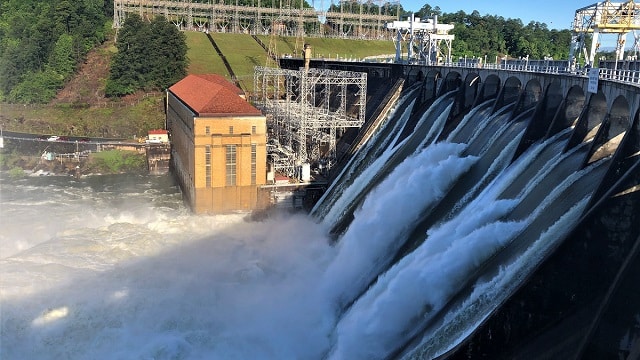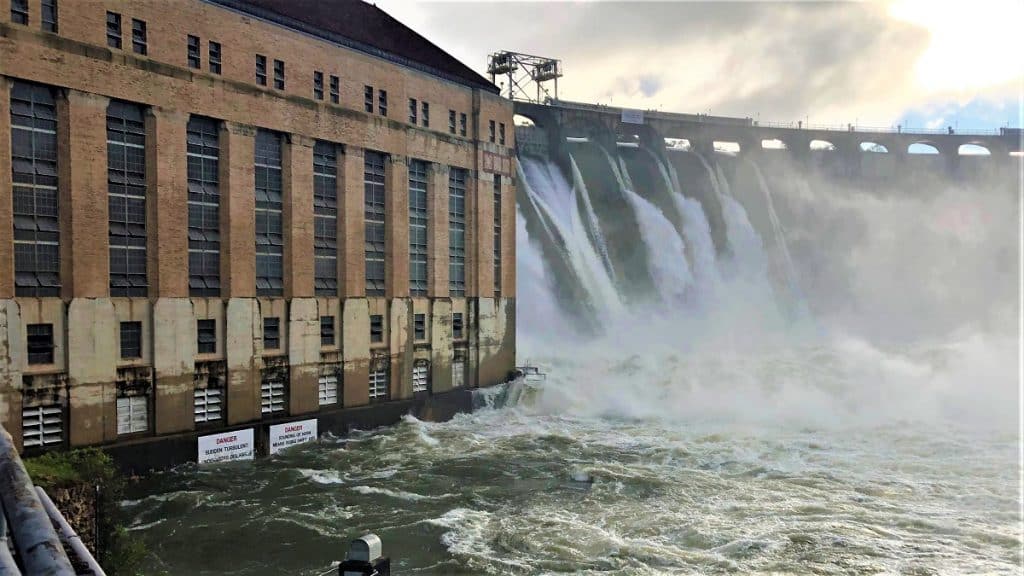Wet Alabama winter and spring mean more hydro energy for customers

Alabama Power's Reservoir Management group has been working hard to control water levels and produce hydro power during this year's heavy rains. (Alabama Power)
Strong storms in April have added to the above-average rainfall in Alabama this year. Those rains boosted the amount of low-cost, renewable hydro energy going to serve Alabama Power customers.
“This period has been record-setting for rainfall in many areas of our state, particularly the rains we experienced in February,” said Alan Peeples, Alabama Power Reservoir Management manager.
Since Jan. 1, Alabama statewide has received an average 33 inches of rainfall, compared to a normal of around 19 inches. More than 12 inches fell across the state in February alone.
Through mid-April, more than 31 trillion gallons of water have come through the company’s 14 hydro facilities on the Coosa, Tallapoosa and Warrior rivers. Because of the abundant rainfall, hydro energy production this year is double what was originally estimated for the time period.
Hydro power generation is one of the most cost-effective sources of energy but is dependent on the amount of water available. The above-average rains mean more low-cost, renewable hydro energy to serve Alabama Power customers. It helps reduce the amount of more-costly energy sources needed to meet demand.
“Through every heavy rain episode this year, our teams have successfully managed our resources with safety as the top priority,” said Herbie Johnson, Hydro Services manager. “They plan and prepare to make sure our hydro assets run efficiently and, most importantly, safely.”

Alabama Power’s Reservoir Management group has been working hard to control water levels and produce hydro power during this year’s heavy rains. (Alabama Power)
The winter and spring rainy seasons are busy times for the company’s Reservoir Management group.
“Last year we had an extremely wet winter and spring, and this year has been wet as well,” Peeples said. “We are a small group of engineers managing the water for Alabama Power lakes, so the rainy seasons can be challenging.”
“We’ve worked extra hard for many hours this year to manage the lakes during a record-setting wet winter – and this spring has been much of the same,” said Christy Nix, lead principal engineer for Reservoir Operations. “It’s rewarding to see how these periods of heavy rains have been successfully managed for the benefit of customers, and how everyone on the team played a role in that success.”
Learn more about Alabama Power’s Hydro operations at https://apcshorelines.com/our-lakes/.





